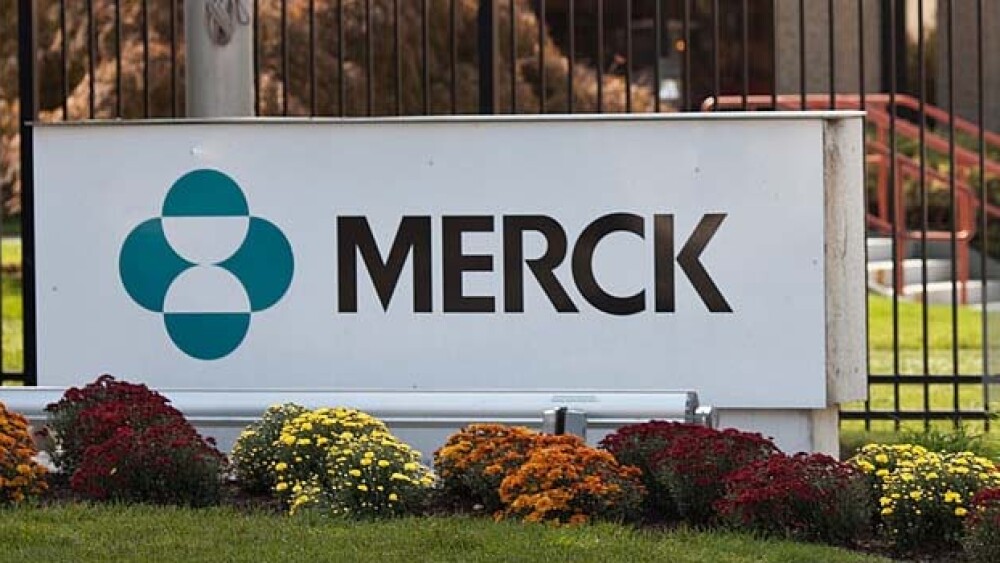Merck & Co. filed with the U.S. Securities and Exchange Commission that it plans an extensive restructuring of its manufacturing and supply network. This will, it indicates, reduce its “global real estate footprint.”
Merck & Co. filed with the U.S. Securities and Exchange Commission that it plans an extensive restructuring of its manufacturing and supply network. This will, it indicates, reduce its “global real estate footprint.”
The restructuring is expected to be mostly completed by the end of 2023 and is projected to incur pre-tax costs between $800 million and $1.2 billion. It expects to record GAAP charges of about $500 million related to the program this year, including $187 million in the first quarter.
About 55% of the pretax costs will be in cash to pay for the shutdown of facilities and “employee separate expense.” The company has not identified the specific plants it will shut down or indicated how many jobs it plans to cut.
The rest of the cumulative pretax costs, or 45%, are expected to be related to accelerated depreciation of the facilities closed or divested.
The filing came only a day after its first-quarter financial report that showed quarterly sales of $10.8 billion, an increase of 8%. Those sales were largely driven by its checkpoint inhibitor Keytruda, which grew 55% for the quarter to $2.269 billion from the same period last year when it brought in $1.464 billion. Pharmaceutical sales in general increased 8% from $8.919 billion in the first quarter of 2018 to $9.663 billion this quarter.
Other big increases were Gardasil, which increased 27% to $838 million, Varivax which rose 27% to $496 million, and Bridion, which increased 25% to $255 million. However, Zetia/Vytorin dropped 50% from $471 million in the first quarter of 2018 to $238 million in the first quarter of 2019, with several other drugs also decreasing in sales, though none as dramatically as Zetia, a cholesterol medication.
Keytruda, however, was the real growth driver, which the company indicates is a reflection of the strong momentum for the drug in patients with non-small cell lung cancer (NSCLC) and continued launches with new indications. The company also stated, “Oncology sales reflect alliance revenue of $79 million related to Lynparza and $74 million related to Lenvima, representing Merck’s share of profits, which are product sales net of cost of sales and commercial costs.”
But make no mistake. The company’s profits are being driven by Keytruda, which brought in twice as much revenue as the closest other drug, Januvia, and about the same as its Animal Health, Livestock and Companion Animals sales combined.
Kenneth C. Frazier, Merck’s chairman and chief executive officer, stated, “Our strong start in 2019, with double-digit sales and EPS growth in the first quarter, demonstrates our execution across all aspects of our business and the strength of our key growth pillars, including oncology and vaccines. Our investments in research and development are paying off, and we are confident in our science-driven strategy, growth prospects and ability to sustainably deliver value to patients and shareholders.”
Merck has been in the process of closing older facilities while investing heavily into biologics manufacturing. Last year, a facility in Ireland was chosen for closure but was saved by Keytruda sales, with Merck indicating it would build a new biologics plant at the Swords site near Dublin to manufacture Keytruda. Merck indicated it would create about 350 jobs as part of that plan, which it hopes to have up and running by 2021.
In October 2018, Merck announced it planned to spend more on new capital projects through 2022. The original figure was $122 billion, with $8 billion slotted for projects in the U.S. The company raised that figure to $16 billion, stating at the time, “The focus of this investment will primarily be on increasing manufacturing capacity across Merck’s key businesses.”





